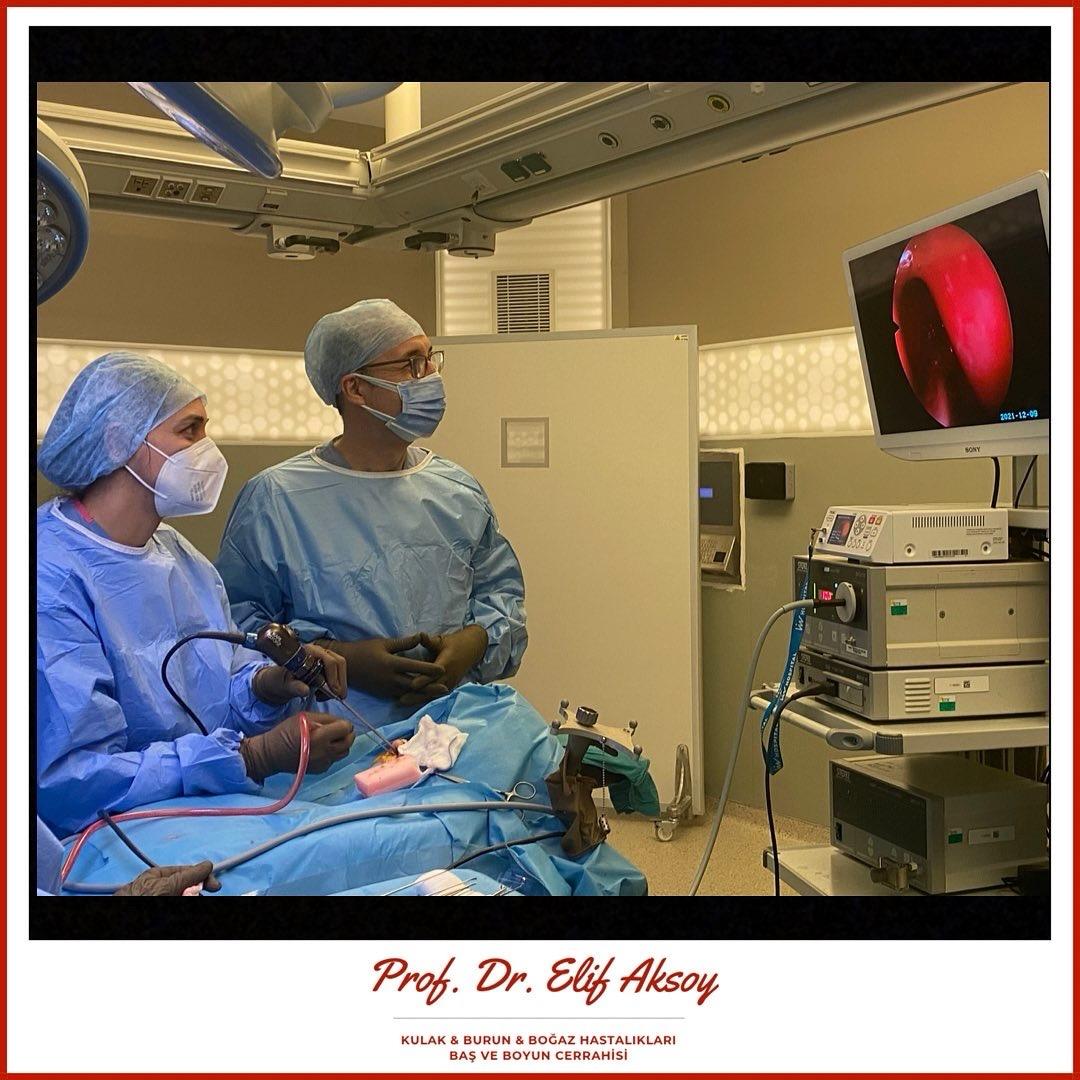Endoscopic Skull Base Surgery: The Power of a Minimally Invasive Approach
Endoscopic skull base surgery is a minimally invasive surgical technique that allows for the removal of tumors, cysts, and other pathologies located at the skull base through the nasal and sinus cavities. Compared to traditional open surgeries, it offers less tissue damage, shorter recovery time, and a lower risk of complications.
Which Conditions Is It Used For?
Endoscopic skull base surgery is particularly used in the treatment of nasal and sinus tumors, pituitary adenomas, meningiomas, craniopharyngiomas, chordomas, and similar lesions. It is also preferred in cases such as cerebrospinal fluid (CSF) leaks, congenital anomalies, and traumatic skull base fractures.
What Are the Advantages?
- Minimal tissue damage: Less traumatic compared to open surgeries.
- Access through small incisions: The procedure is performed through the nose without any external facial incisions.
- Fast recovery period: Patients usually return to their normal lives more quickly.
- Lower risk of complications: Bleeding, infection, and nerve damage are minimal.
Surgical Process and Postoperative Care
Before surgery, advanced imaging techniques (MRI, CT) are used for detailed planning. During the procedure, the pathology at the skull base is removed using an endoscope and microsurgical instruments. After surgery, patients are closely monitored, and breathing, vision, and nerve functions are assessed.
Endoscopic skull base surgery particularly focuses on nerve preservation and maintaining organ function. Successful outcomes can be achieved with a comprehensive evaluation and an experienced surgical team consisting of ENT and Neurosurgery specialists.



